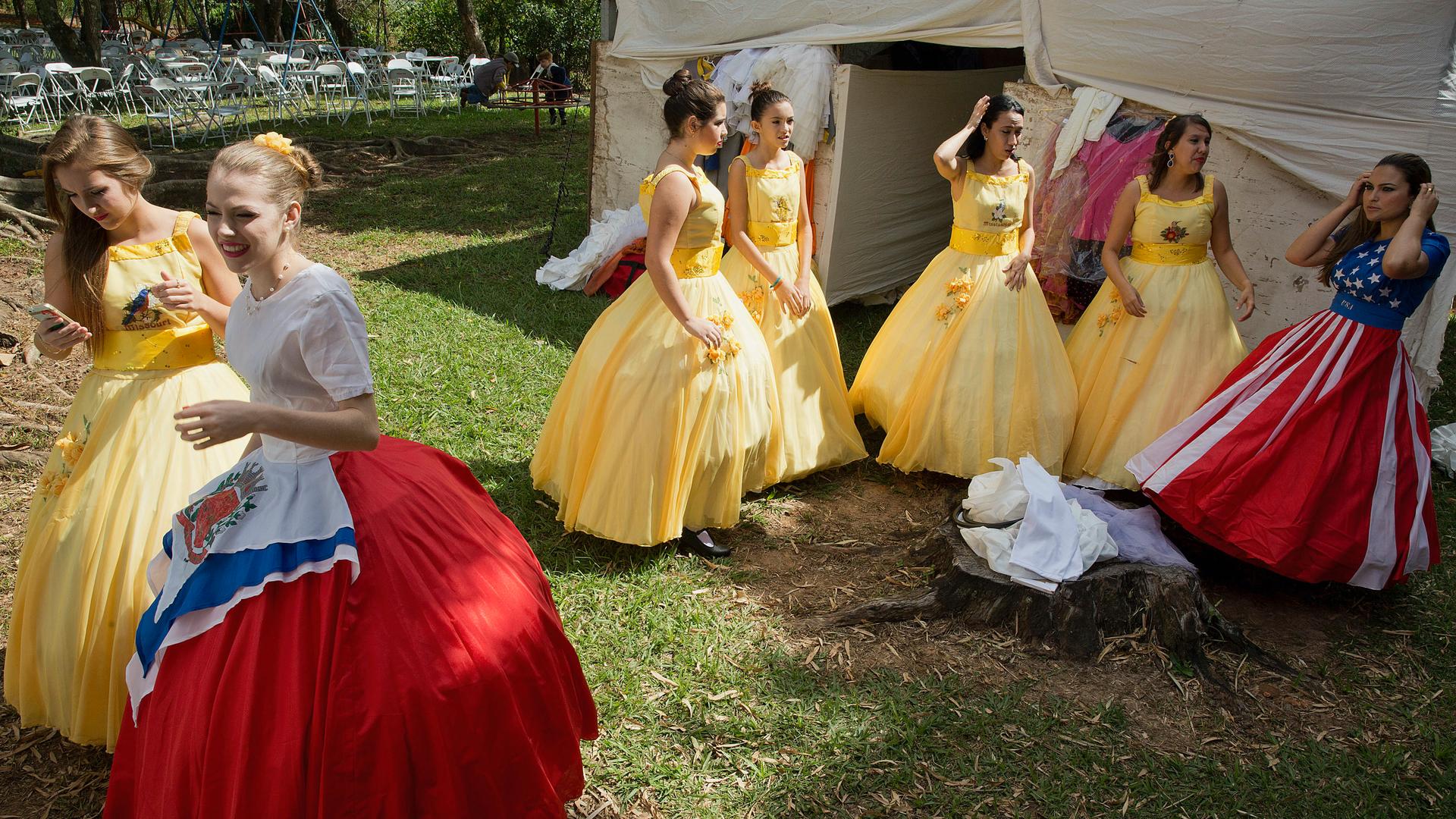This Brazilian city is home to a US Civil War colony. It banned racist symbols at its annual Confederate festival.
The Confederate festival in Santa Bárbara d’Oeste in São Paulo, Brazil, is a celebration of everything you might imagine from the Southern United States: square dancing, fried chicken, burgers, beer and country music.
Also — there are “a lot of Confederate flags. Everywhere. All over the place,” Reuters reporter Asher Levine told The World in an interview with host Marco Werman in 2015.
That’s for real.
In news footage from last year’s event, people proudly wear the Confederate flag on hats and shirts. They wave it. A huge flag covers the entire stage.
Historically, it has been the symbol of the April event. But not anymore.
In June, the Santa Barbara d’Oeste City Council took up the issue during a three-hourlong public forum.
“We can’t ignore or deny the racist connections that the Confederates evoke in Brazil and around the world, when the flag is directly related to racist movements in every country,” said one historian at the hearing.
“That’s what we’re calling for today. This symbol needs to be banned across Brazil,” Andre Alexandre da Silva, the head of a local chapter of the Union of Black Men and Women for Equality, told the City Council.
The group that puts on the festival did not participate in the forum. They say the flag is a symbol of their heritage.
Many city councilors disagreed.
“We are a racist country, and we need to evolve,” said Esther Moraes, who spearheaded the initiative to prohibit the flag. “Our job as city councilors is to treat this issue with the seriousness that it deserves.”
The City Council voted unanimously to ban the use of the Confederate flag at public festivals.
Sidney Aguilar Filho is a Brazilian historian who testified at the hearing. He said that they asked him if it was possible to separate the Confederate symbology from the racist mindset and practices that it embodies.
“No,” Aguilar Filho told The World. “Using the Confederate flag in our time indicates a racist interpretation of the world.”
Luciana Brito is a historian from the Federal University of Recôncavo da Bahia, who has studied the story of the Confederates in this region closely.
She said the whole reason these Southerners moved here following the Civil War was because Brazil had not yet abolished slavery. And they were looking to continue their racist beliefs and way of life.
Brito said this was expressed in letters exchanged between family members who would emigrate to Brazil, and which Brito researched in the United States.
“There was propaganda for these families to emigrate to Brazil and take their beliefs with them,” Brito said. “Including the belief of inequality between races. The inferiority of Black people, the continuity of slavery, the importance of racial segregation.”
“And that is what the Confederate flag represents,” she added.
Black movements in Santa Barbara d’Oeste have applauded the ban.
The City Council made it clear that the festivals celebrating American culture can continue, but without the use of a racist symbol — the Confederate flag.
